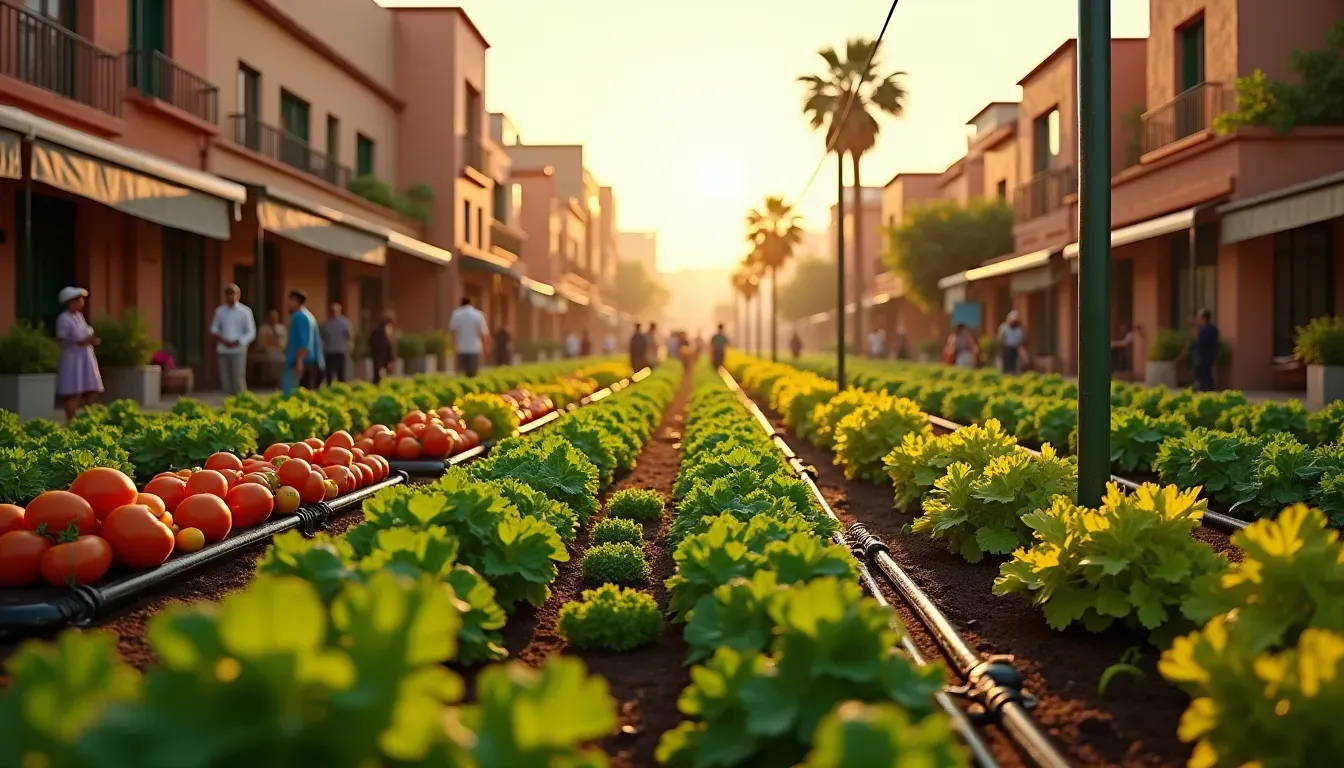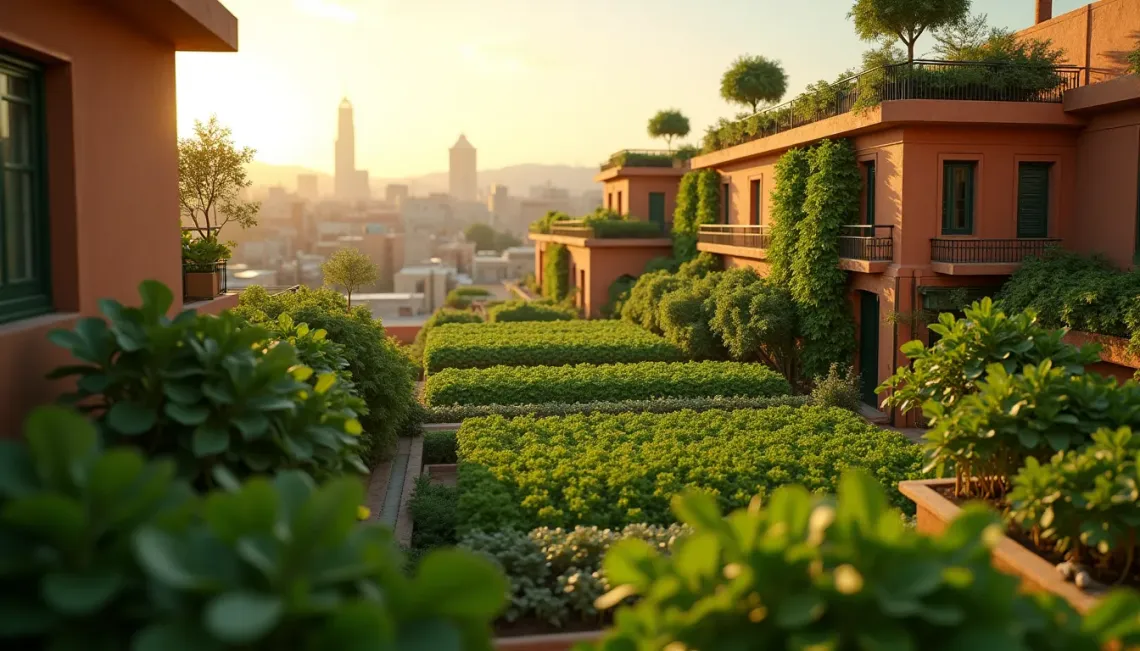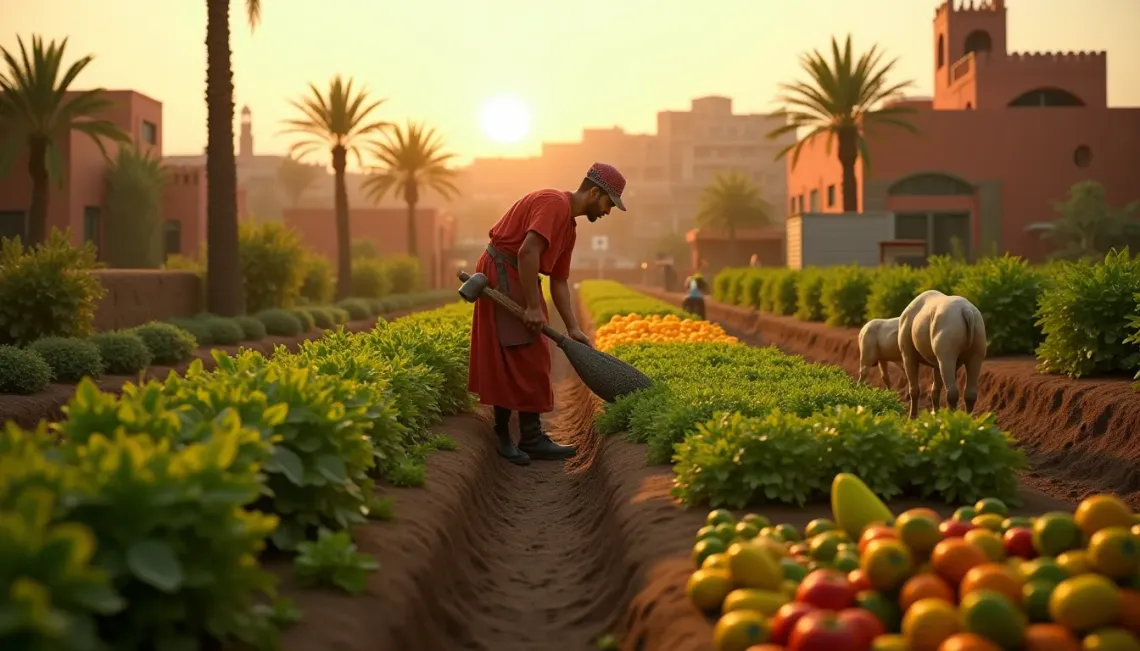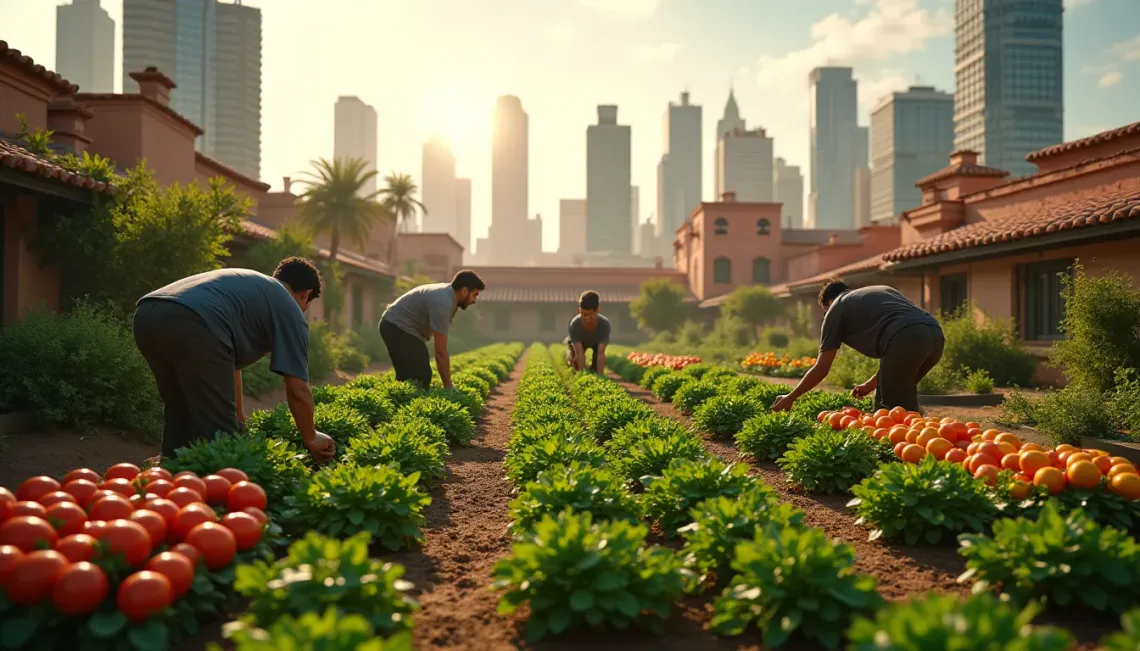Urban farming is increasingly gaining traction in Morocco, marking a sustainable shift in city agriculture. As more cities in the country embrace this trend, community gardening projects are flourishing, transforming underutilized city spaces into productive landscapes. This transformation is not only helping in sustainable food production but also fostering a sense of community and environmental stewardship.
The Rise of Urban Farming in Morocco
Urban farming in Morocco has emerged as a pertinent solution to address food security and urbanization challenges. The bustling cities of Casablanca, Rabat, and Marrakesh are now home to myriad urban agriculture projects. These initiatives utilize rooftops, balconies, and vacant plots, providing fresh produce directly to city dwellers.
City Agriculture: Turning Concrete Jungles Green
The concept of city agriculture is reshaping Moroccan urban landscapes. Through innovative techniques such as vertical gardening and aquaponics, urban farmers in Morocco are producing a range of crops efficiently. These techniques allow for high-yield outputs using minimal space, addressing the limited land availability in urban areas.
- Vertical gardens optimize space by stacking layers of plants.
- Aquaponics integrates fish farming with plant cultivation, creating a symbiotic ecosystem.
- Terrace and rooftop gardens transform unused spaces into productive areas.
Community Gardening: Building Bonds and Empowering Communities
Community gardening is at the heart of urban farming in Morocco. These collective gardening efforts not only provide food but also enhance social ties among residents. By working together, communities are building stronger connections and learning sustainable agricultural practices.
Such projects are often supported through workshops that teach locals how to grow, maintain, and harvest crops effectively. These educational endeavors contribute to greater food sovereignty and resilience against food supply disruptions.
Sustainable Food Production: Ensuring a Greener Future
Urban farming is central to sustainable food production strategies in Morocco. By reducing transportation costs and emissions associated with traditional supply chains, city agriculture offers a greener alternative for food provision. Additionally, urban farms often use organic methods, avoiding harmful pesticides and fostering biodiversity.
Moreover, the integration of composting and rainwater harvesting techniques enhances the sustainability of these urban agricultural practices. These methods help conserve resources and minimize waste, contributing to the overall environmental benefits of urban farming.
Connecting Urban Farming with Broader Initiatives
Urban farming in Morocco is interconnected with broader environmental and social initiatives, such as renewable energy projects and sustainable tourism. By aligning urban agricultural practices with these areas, Morocco is setting a precedent for integrated sustainability strategies.
Challenges and Opportunities
While urban farming presents numerous benefits, it also faces challenges such as limited space, water scarcity, and initial setup costs. However, these obstacles are being addressed through governmental support and community partnerships, highlighting the potential for scalable growth in this sector.
By overcoming these challenges, Morocco's urban farming initiatives can serve as models for other countries to emulate, demonstrating how city agriculture can promote sustainable food production and community resilience.
In conclusion, urban farming in Morocco is not just about growing food; it's about cultivating communities and championing sustainability. As this movement continues to expand, it promises to transform urban spaces into vibrant, productive environments that benefit society and the planet alike.




